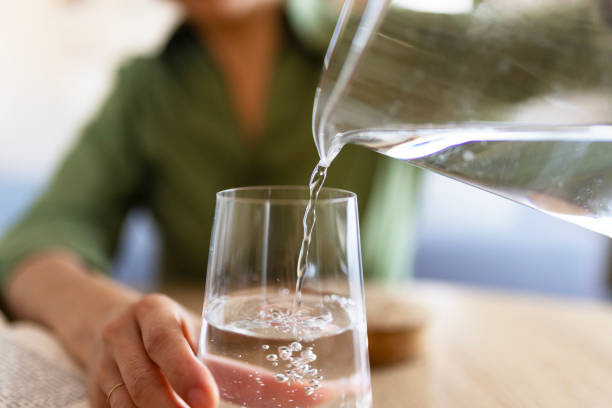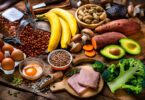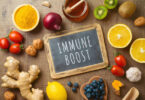Water is life—literally. Every cell, tissue, and organ in your body needs water to function correctly. From regulating temperature and aiding digestion to protecting your joints and maintaining your skin’s glow, water plays an irreplaceable role in your overall health.
Yet, many people walk around mildly to severely dehydrated without even realizing it. So, how do you know when your body is crying out for hydration?
In this ultimate guide, we’ll uncover 7 warning signs your body needs more water, what causes dehydration, and how to fix it—before it affects your health.
Why Hydration Is So Important
Before diving into the signs, let’s understand why water is essential.
The Role of Water in Your Body
- Regulates body temperature
- Flushes out toxins
- Aids in digestion and nutrient absorption
- Lubricates joints and cushions organs
- Supports skin health and elasticity
- Powers physical and cognitive performance
Without enough water, these systems begin to falter—and the signs will start to show.
Persistent Fatigue and Low Energy Levels
Feeling Tired? It Might Not Be Lack of Sleep
If you’re getting 7–8 hours of sleep but still feel drained, dehydration could be the culprit.
How It Works
When you’re dehydrated, your blood volume decreases. This makes it harder for your heart to pump oxygen and nutrients to your muscles and brain, resulting in fatigue and sluggishness.
Additional Clues
- Afternoon crashes
- Trouble waking up
- Heavy limbs or muscle weakness
The Fix
Start your day with a glass of water, and aim to drink regularly throughout the day—even if you’re not thirsty.
Headaches and Brain Fog
Dehydration Can Mimic a Migraine
Your brain is around 75% water. When you’re dehydrated, it can temporarily shrink, pulling away from the skull and causing pain.
Symptoms to Watch For
- Dull, throbbing pain in the temples or back of head
- Sensitivity to light or sound
- Lack of focus and mental clarity (a.k.a. brain fog)
The Science
Studies show that even mild dehydration can impair short-term memory, focus, and alertness.
The Fix
Try drinking a glass of water before reaching for a painkiller—you might be surprised how effective it is.
Dry Skin, Chapped Lips, and Premature Wrinkles
Beauty Starts from Within
Dehydration doesn’t just affect how you feel—it shows up on your skin.
Signs of Dehydrated Skin
- Itchy, flaky, or tight feeling
- Fine lines appear more pronounced
- Cracked lips that won’t heal with lip balm
- Dull complexion
Why It Happens
When your body lacks water, it diverts hydration to vital organs first—leaving your skin at the bottom of the list.
The Fix
Drink water consistently, and complement it with hydrating foods like cucumbers, watermelon, and oranges.
Dark Yellow Urine and Infrequent Bathroom Trips
Your Urine Speaks Volumes About Hydration
Urine color is one of the clearest indicators of your hydration status.
What to Look For
- Pale yellow or clear = well hydrated
- Dark yellow or amber = dehydrated
- Honey or tea-colored = severely dehydrated
Also, if you’re urinating fewer than four times a day, it could be a red flag.
The Fix
Hydrate with pure water, not sugary drinks. Electrolyte-rich beverages can help when dehydration is severe.
Digestive Issues and Constipation
Water Keeps Your Gut Running Smoothly
Water is essential for breaking down food and moving it smoothly through your digestive tract.
Signs of Dehydration in Digestion
- Constipation
- Hard, dry stools
- Bloating and cramping
- Acid reflux or heartburn
Why It Happens
When you don’t drink enough, your body pulls water from the colon to support other vital functions—making stools hard and difficult to pass.
The Fix
- Drink a full glass of water before meals
- Eat more fiber-rich fruits and vegetables
- Limit caffeine and alcohol, which can dehydrate
Cravings for Sugar and Junk Food
Dehydration Can Be Confused with Hunger
Ever had a sudden craving for a donut or bag of chips? It might not be hunger—it could be your body asking for water.
How Dehydration Tricks You
Your body needs water to convert glycogen into energy. When it can’t, it sends out hunger signals to prompt a quick fix—often in the form of sugary snacks.
The Fix
Next time you’re craving something unhealthy, drink a glass of water and wait 15 minutes. You may find the urge fades.
Hydrating Snacks to Try Instead
- Fresh fruit (berries, oranges, apples)
- Greek yogurt with honey
- Cucumber and hummus
Dizziness, Rapid Heartbeat, and Overheating
Signs You Shouldn’t Ignore
These symptoms can be serious signs of moderate to severe dehydration.
What’s Happening in Your Body
- Dehydration reduces blood volume
- Blood pressure drops
- Heart compensates by beating faster
- Body struggles to cool itself through sweat
Dangerous Situations
- Exercising in hot weather
- Long flights or road trips
- Working under the sun
The Fix
At the first sign of dizziness or elevated heart rate, stop, rest, and hydrate. Consider adding electrolytes if symptoms persist.
What Causes Dehydration?
Common Triggers
- Not drinking enough water daily
- Sweating from exercise or hot weather
- Fever or illness
- Diuretic medications
- Excessive alcohol or caffeine
- High-protein or low-carb diets
At-Risk Groups
- Elderly adults
- Infants and young children
- Athletes
- People with chronic illnesses
How Much Water Do You Really Need?
General Guidelines
- Men: About 3.7 liters (125 oz) per day
- Women: About 2.7 liters (91 oz) per day
This includes water from beverages and foods.
Signs You’re Drinking Enough
- Urine is light yellow
- You rarely feel thirsty
- You have consistent energy
Adjust for Your Lifestyle
- Exercise = drink more
- Hot climate = drink more
- Breastfeeding or illness = drink more
Tips to Stay Hydrated All Day
Start Your Day with Water
Drink a glass of water first thing in the morning to rehydrate after sleep.
Carry a Reusable Water Bottle
Keep it on your desk, in your bag, or in the car—it serves as a physical reminder.
Use Hydration Apps
Apps like Plant Nanny or Water Reminder help you stay on track.
Eat Water-Rich Foods
Fruits and veggies like:
- Watermelon
- Cucumber
- Lettuce
- Oranges
- Strawberries
Add Flavor Naturally
Infuse your water with:
- Lemon or lime slices
- Mint leaves
- Berries
- Cucumber
Long-Term Benefits of Staying Hydrated
Physical Health
- Clearer skin
- Healthier joints
- Easier weight management
Mental Performance
- Better focus and memory
- Improved mood
- Reduced risk of anxiety
Disease Prevention
- Lowers risk of kidney stones
- Supports cardiovascular health
- Boosts immune response
When to Seek Medical Attention
While mild dehydration can be reversed easily, severe dehydration is a medical emergency.
Seek help if you experience:
- Rapid heartbeat or breathing
- Confusion or fainting
- No urination for 8+ hours
- Extreme thirst with dry mouth and eyes
- Bloody or dark-colored urine
Immediate Steps to Take
- Drink electrolyte-rich fluids (e.g., oral rehydration solution)
- Avoid caffeine and alcohol
- Rest in a cool place






